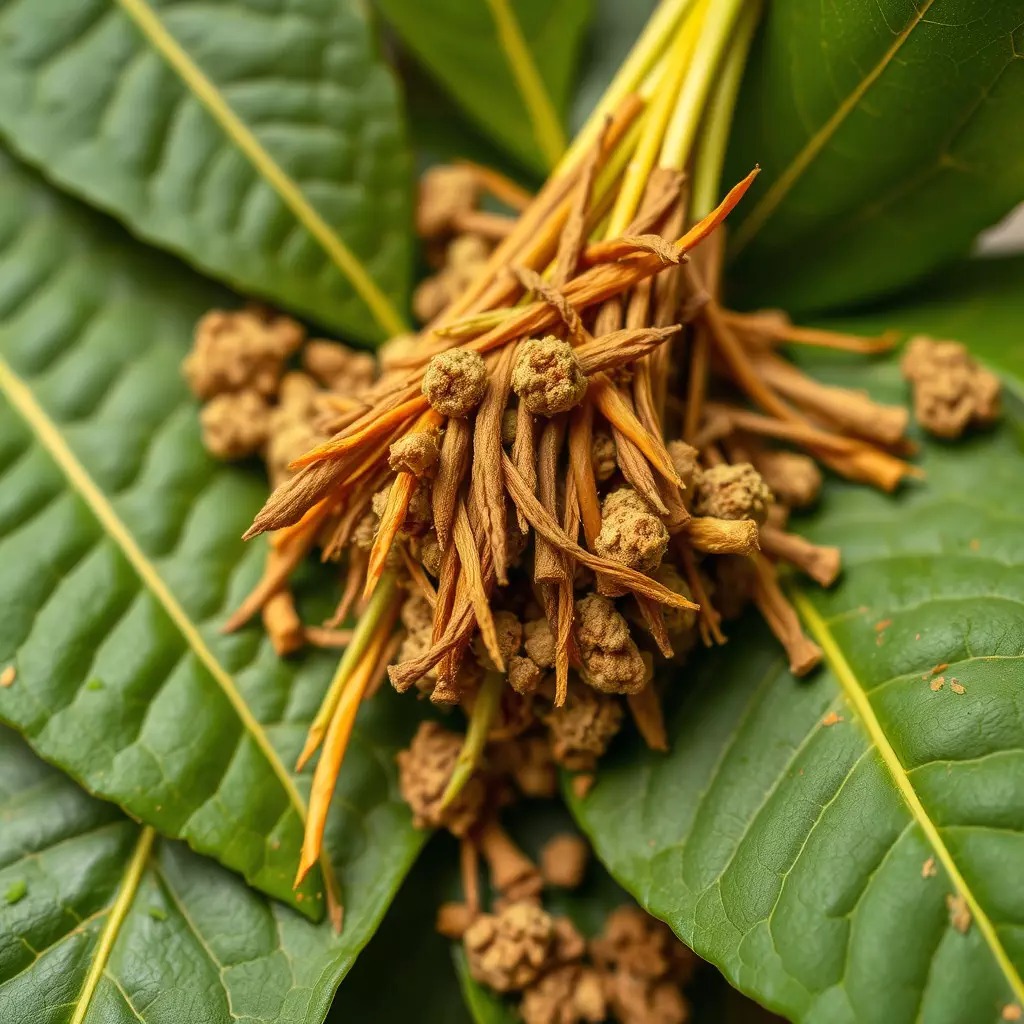Kratom, a Southeast Asian evergreen tree, contains alkaloids like mitragynine and 7-hydroxymitragynine that interact with opioid receptors to potentially enhance mood and provide an energy boost. Users report increased energy levels from strains such as Maeng Da or White Vein kratom, similar to the effects of caffeine but without the jitteriness. Emotional benefits include feelings of calmness and reduced anxiety or depression symptoms, depending on the strain. However, due to its potency and the variability in individual responses, it's essential for users to exercise caution and consult healthcare professionals before using kratom. The legal status of kratom varies by region, impacting its availability and necessitating awareness of local laws. A balanced approach to kratom consumption involves understanding both its energy-enhancing properties and its complex effects on mental health, with a focus on informed use for well-being.
Emotional well-being is a cornerstone of overall health, deeply intertwined with our energy levels and daily functioning. This article explores how Kratom, a natural substance, can play a pivotal role in supporting both emotional balance and energy vitality. We will delve into the scientific underpinnings of Kratom’s effects on mood and its potential as an integrative component within a comprehensive strategy for enhanced emotional support and a significant energy boost with Kratom. Join us as we navigate the nuanced relationship between Kratom and emotional health, offering insights to those seeking natural alternatives for well-being.
- Understanding Kratom's Role in Emotional Well-Being and Energy Levels
- The Science Behind Kratom and Its Impact on Mood and Vitality
- Integrating Kratom into a Holistic Strategy for Enhanced Emotional Support and Energy Boost
Understanding Kratom's Role in Emotional Well-Being and Energy Levels

Kratom, a tropical evergreen tree native to Southeast Asia, has garnered attention for its potential role in supporting emotional well-being and energy levels. The leaves of kratom contain alkaloids, primarily mitragynine and 7-hydroxymitragynine, which are thought to interact with the brain’s opioid receptors, thereby influencing mood and energy perception. Users often report an energy boost with kratom, particularly when consuming strains like Maeng Da or White Vein varieties. This energizing effect can be beneficial for individuals seeking a natural alternative to caffeine or other stimulants to help them manage daily tasks and maintain concentration throughout the day.
The impact of kratom on emotional well-being is multifaceted. Some users find that specific strains, such as Red Bali or Green Malay, can promote feelings of calmness and serenity, which are conducive to a balanced emotional state. The mood-enhancing properties of kratom may also alleviate symptoms of anxiety and depression, contributing to an improved overall mental health outlook. It is important for individuals to approach the use of kratom with caution and seek guidance from healthcare professionals, as the substance can have varying effects based on dosage, personal physiology, and tolerance levels. Additionally, due to its interaction with opioid receptors, it should be used responsibly and with awareness of potential dependencies or adverse reactions. Understanding kratom’s role in one’s well-being requires careful consideration and a nuanced approach, considering both its benefits and limitations.
The Science Behind Kratom and Its Impact on Mood and Vitality

Kratom, a tropical evergreen tree native to Southeast Asia, has garnered attention in discussions surrounding emotional well-being and mood regulation. The science behind kratom’s effects stems from its active alkaloids, mitragynine and 7-hydroxymitragynine, which interact with the body’s opioid receptors. These compounds are known to influence the brain’s neurotransmitters, such as dopamine and serotonin, which play pivotal roles in mood regulation and emotional processing. Users often report an energy boost with kratom, particularly from strains like Maeng Da or White Vein, due to its stimulating effects that can elevate one’s mood and enhance feelings of vitality. This energy boost is not a mere perception but is supported by research indicating that kratom can increase alertness and reduce fatigue, providing a natural alternative for individuals seeking to improve their energy levels without the jittery side effects associated with traditional caffeinated beverages or synthetic stimulants. The impact of kratom on mood and vitality has led many to explore its potential as a supplementary tool in promoting emotional well-being, with an emphasis on its ability to help individuals manage stress and maintain a positive outlook during challenging times. However, it is crucial for users to approach the use of kratom with caution, as it can have varying effects depending on dosage and individual sensitivity, and its regulatory status varies by country and region. Always consult with healthcare professionals before integrating kratom into one’s wellness routine to ensure safe usage and compatibility with other medications or health conditions.
Integrating Kratom into a Holistic Strategy for Enhanced Emotional Support and Energy Boost

Kratom, a plant from Southeast Asia, has garnered attention in various holistic wellness strategies, particularly for its potential to provide an energy boost with kratom and support emotional well-being. When integrated into a comprehensive health regimen, kratom can offer balanced mood support and help manage stress. Its active compounds, mitragynine and 7-hydroxymitragynine, are believed to interact with the brain’s receptors, influencing neurotransmitters like serotonin and dopamine, which play a role in regulating mood. This can lead to an enhanced sense of well-being and vitality. For those seeking a natural alternative to conventional energy boosters or mood-enhancing pharmaceuticals, kratom’s holistic approach aligns with the goals of emotional well-being support. It’s important to approach the use of kratom with caution, as it requires careful consideration of dosage and frequency to maintain balance and avoid adverse effects. Consulting with a healthcare provider is essential before incorporating kratom into any wellness strategy, ensuring safe and effective use for an energy boost with kratom and emotional support. Additionally, individuals should consider the legal status of kratom in their region, as it varies by jurisdiction and may be subject to regulation or restrictions.
In conclusion, the role of kratom in supporting emotional well-being and providing an energy boost is multifaceted and deeply rooted in scientific research. As outlined in this article, understanding how kratom interacts with the body’s systems can be pivotal for those seeking a natural approach to mood enhancement and vitality improvement. By integrating kratom into a holistic strategy, individuals may experience a more balanced emotional state alongside heightened energy levels. It is crucial to approach this herb with caution and within recommended guidelines to ensure safety and efficacy. As with any wellness practice, personalized guidance from a healthcare professional is advisable to navigate the benefits of kratom responsibly. Emotional well-being support, coupled with an energy boost, can lead to a more enriching and harmonious life experience.






